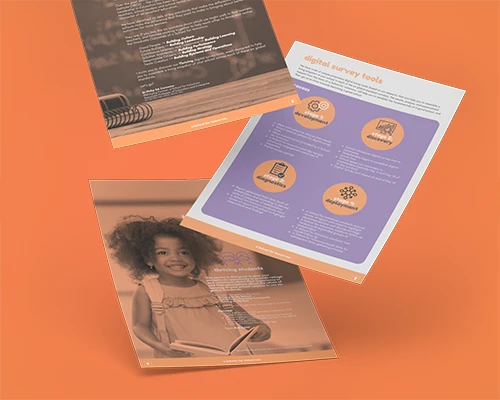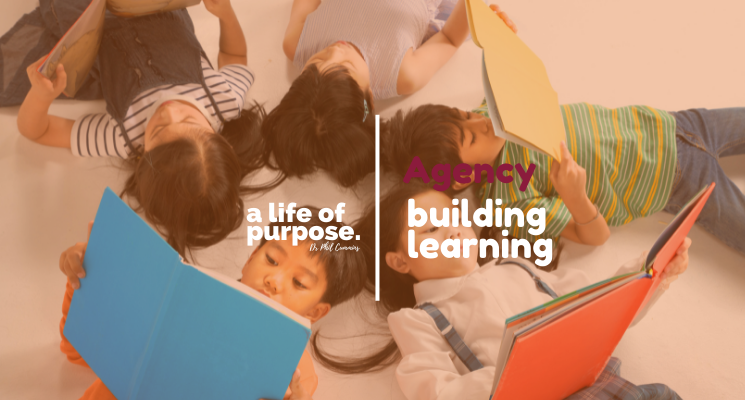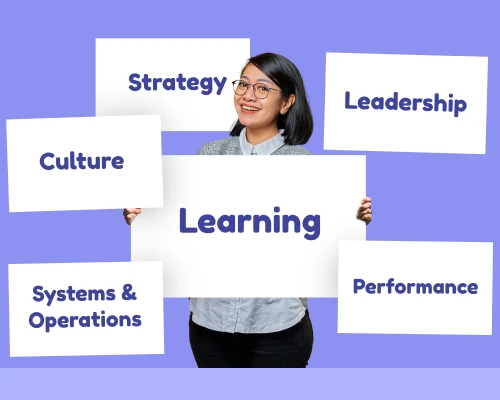
Dr Phil Cummins
Mar 26, 2023 | 4 minute read
Student Voice and Learning
Dr Phil Cummins builds the case for the imperative to build student voice by building learning.
Promotion
a School for tomorrow's
A School for tomorrow. Global Community
Join our global community of innovative, like-minded people and schools who are exploring today's learning for tomorrow's world.
Let's go!Building learning is synonymous with building voice in a future-fit education. This is, perhaps, the most far-reaching change to the nature of schooling over the past two decades. How we attend to the way in which our students come to understand who they are, their trajectory as a learner and the possibilities that this might unlock for them – especially in how we enlist the best technology to enable this – is as much a measure of our success in education as any.
The learning work of a school must take seriously how it privileges the creation of relevance and engagement with the nurturing of incipient student voice, especially through:
- Goal-Setting, Motivation & Attainment: students need to be really motivated to learn and interested in what they are learning day by day.
- Self-Regulation, Inquiry & Evaluation: engaged and successful students enjoy asking questions, seeking help, and receiving timely, clear and positive feedback to give them the direction they need to improve in their learning.
Thus, really effective learning is much less about the voluminous assimilation of content and meeting minimum levels of compliance with task requirements, per se. Effective use of technology will allow students to be both efficient and effective in creating solutions for these procedural requirements and focus their deep thought and serious commitment to transformation through growth.
The rehearsal of a voice that honestly describes both the trajectory of growth and the transformation of character necessitates individual endeavour within a collective enterprise:
“What we know and do, who we are becoming and our learning habits are formed deliberately and progressively in a community of inquiry and practice. We are surrounded by people who work with us to help shape us as people and support our hopes and aspirations.”
Ref: www.aschoolfortomorrow.com/the-pathway-to-excellence/learn/academic-development
Teachers involved in our CIRCLE Global Educational Research Program have four different types of motivation in bringing out the voices of their students through this process of individual and collective learning:
- The pathfinders: teachers who identified their purpose in the provision of essential knowledge, skills, dispositions, and habits that would prepare students to thrive in the world beyond school (28%) – “The world is forever changing; I want them to be fully equipped to deal with all the curve balls that life throws at them.”
- The vocational: teachers who were most passionate about sharing their love of learning and love of their subject area with students (28%) – “I am constantly looking to improve myself. If I can do this, and continue learning, then I can continue improving on my teaching skills.”
- The technicians: teachers who found fulfilment across the breadth and depth of their accumulated expertise across all facets of their job (25%) – “I want the students I teach to gain confidence in my specific learning area because with confidence comes a myriad of other positive attributes – achievement, self-worth, character growth, independence, motivation etc.”
- The servants: teachers whose connection to the needs and growth of students was paramount (17%) – “Students thrive when they feel you know them, care about them and are genuinely interested in their academic progress.”
We like how one teacher in our research program provided an holistic response to this: “My purpose in the classroom is to develop inquiring minds, logical thinkers, confident individuals – individuals that believe that there is a purpose to everything that they learn. They must be able to relate everything they learn to their world around them.” In other words, expert teachers bring clarity to their students. They support their students to become continuous learners and unlearners who who seek growth by experimenting, testing boundaries, making mistakes, and finding the best technology to help them thrive. Their practice focuses on:
- Goal-Setting, Motivation & Attainment: they design rigorous curriculum, make choices about relevant content and material, use a range of engaging instructional strategies, and develop assessment tasks that motivate students and keep them focused on their learning.
- Self-Regulation, Inquiry & Evaluation: across all of their responsibilities, they encourage students to test their interests, passions and ambitions, and use good situational awareness to acknowledge their broader questions and difficulties about the world at large.
We need to show our students how to become engaged and empowered continuous learners and unlearners with the capacity to grow and transform themselves by taking responsibility for their learning supported by the best technology to help them thrive.
Often referred to as ‘human’ or ‘soft’ skills, the global educational research program of a School for tomorrow has identified six core Employability Skills. Educating for Student Voice through learning is enabled by the efficient and effective use of technology. It aligns with and enhances the values and value propositions of their communities in an integrated fashion:
Good learning is holistic. It always has to be. It has to be a match between the wellbeing and the academic. And it's not a binary view. It's not either/or. We have to be really careful that we're thinking holistically as learners ourselves.
Nikki Kirkup | Game Changers insight*
|
Quality |
Attributes |
Capabilities |
|
Learning & Technology |
Engaging in Own Learning |
I seek out opportunities to learn new skills and information. |
|
Developing New Capabilities |
I learn to complete unfamiliar tasks quickly. |
|
|
Supporting Others to Learn |
I help others to learn in the workplace. |
|
|
Digital Fluency |
I learn how to use new technologies to perform my role more effectively in the workplace. |
|
|
Digital Citizenship |
I use technology constructively to support the goals of my organisation. |
|
|
Managing Data |
I use technology to effectively compile, process, and analyse data. |
As leaders of learning** in our schools, while managing the realities of daily life and the cycles of external and internal assessment and co-curricular events that demand attention from all periodically, we need to help our learners to focus on their growth through an ongoing process of learning and unlearning that is continuous, especially in its refinement of their emerging voices. Adriano and I state in our recent book*** that:
In short, every learner needs to feel seen and valued in a continuous learning paradigm. The object of continuous learning is their transformation and the process of helping students to become the best versions of themselves should move them from engagement to empowerment.
Ref: Game Changers: Leading Today's Learning for Tomorrow's World (Hawker Brownlow Education 2022) p.87
Let’s go!
Phil
* You can listen to Nikki Kirkup’s Game Changers Episode here: https://podcasts.apple.com/au/podcast/game-changers/id1503430745?i=1000476618518
** You can learn more about an education to learn in which student voices are empowered here: https://www.aschoolfortomorrow.com/game-changers/learn
*** Game Changers: Leading Today’s Learning For Tomorrow’s World is available for purchase here: https://www.hbe.com.au/hb1338.html
Related Content

Products & Services
Discover our 'Thriving' Digital Survey ToolsLike what you’ve read?
Let’s keep the conversation going.

